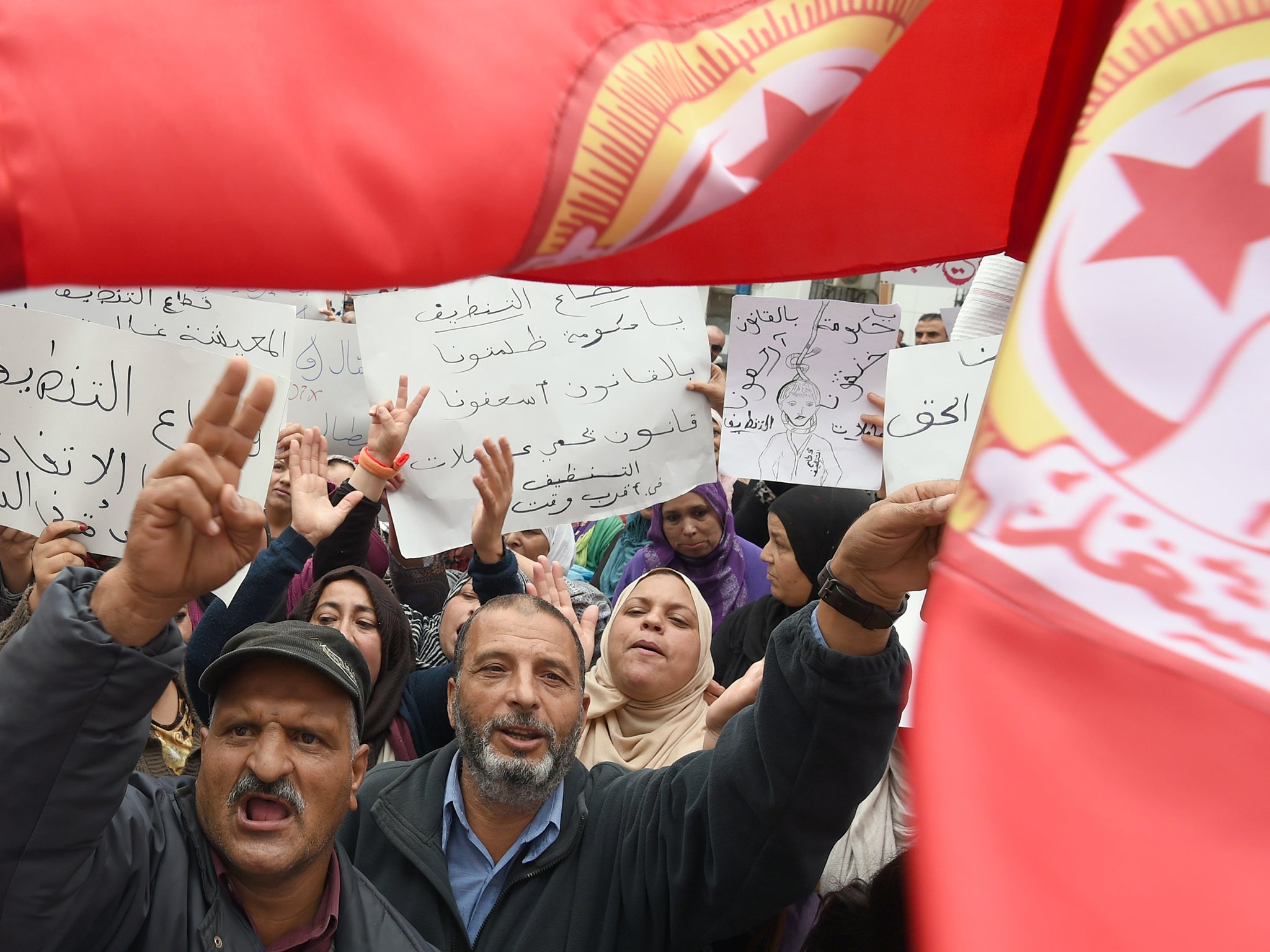Tunisia sentences 6 teens to jail for homosexuality
Homosexuality remains illegal, five years after the nation's uprising sparked calls for change across the region

Your support helps us to tell the story
From reproductive rights to climate change to Big Tech, The Independent is on the ground when the story is developing. Whether it's investigating the financials of Elon Musk's pro-Trump PAC or producing our latest documentary, 'The A Word', which shines a light on the American women fighting for reproductive rights, we know how important it is to parse out the facts from the messaging.
At such a critical moment in US history, we need reporters on the ground. Your donation allows us to keep sending journalists to speak to both sides of the story.
The Independent is trusted by Americans across the entire political spectrum. And unlike many other quality news outlets, we choose not to lock Americans out of our reporting and analysis with paywalls. We believe quality journalism should be available to everyone, paid for by those who can afford it.
Your support makes all the difference.A Tunisian court has sentenced six teenage boys to prison for homosexuality, their attorney told The Independent.
The court in the central-Tunisian city of Kairouan on Thursday sentenced six flatmates, ages 18 and 19, to three years in prison for homosexual activity after their neighbors reported them to police, who found the condoms and women’s clothing at their apartment that were used as evidence against them.
The court will hear an appeal of the ruling in three weeks, the teenagers’ lawyer, Boutheina Karkni, told The Independent Monday.
Ms Karkni feels the sentence — the maximum penalty for homosexuality in Tunisia — is “a little exaggerated”, but does not oppose the North African nation’s homosexuality ban.
“It’s the law, and that law is based on religion,” she said. “God forbids” homosexuality, she added.
Ms Karkni said that she will argue for a commuted sentence, but does not plan to ask the court to overturn the conviction.
Gay rights advocacy group The Tunisian Association for Justice and Equality (Damj) hopes to find the young men alternative representation.
"Yes, Tunisia is an Arab and a Muslim country. But in the preamble of the constitution, it says that the country accepts universal human rights," Damj president Badr Baabou told The Independent. "Articles 21, 23 and 24 guarantee everyone is equal under the law and that the government must protect the private lives of people. But in this case, the state has entered itself into people's private lives."
Homosexuality remains illegal in Tunisia, even after the 2011 revolution resulted in an overhaul of the country’s government and Constitution. Tunisia has been hailed by international media as the only democracy to emanate from the revolutions that swept the region five years ago.
The Norwegian Nobel Committee in October awarded Tunisia’s National Dialogue Quartet, a group of civil society groups that oversaw the restructuring of the Tunisian government in the aftermath of the revolution, a Nobel Peace Prize.
Join our commenting forum
Join thought-provoking conversations, follow other Independent readers and see their replies
Comments